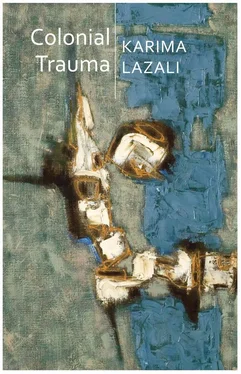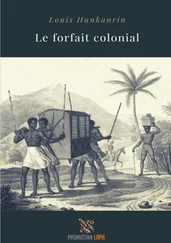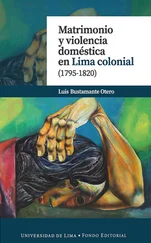In a lucid assessment, Lazali reveals a psychic alibi or displacement that replaces an “inner revolution” (the uprising that the subject stages against itself) with another, already completed, revolution: the War of Liberation. This subject’s only oppressor is the oppressor from whom it has already been freed.
The Argentine psychoanalyst Silvia Bleichmar 3(2009) distinguishes between two concepts that she also defines: the constitution of the psyche and the production of subjectivity . The former refers to the universals that contribute to psychic constitution (the unconscious, repression), and the latter names the historical processes that determine the constitution of the social subject. These latter processes are articulated with the processes of psychic constitution as well as with social, ideological, historical, and political variables. According to this description, the apparatus of the LRP would operate at the level of the production of subjectivity .
Every subject enters a narcissistic contract (Aulagnier, 2001) 4with the family group into which it is born, but especially with the social body that gives shelter to, and that constitutes by cathecting, its subjects. This contract will become a link in and guarantee of the generational chain as long as the subject bears a sense of filiation, belonging, or social continuity. The psychic constitution of the infans takes place in a socio-cultural space that transcends the space of the family and makes “foundational statements,” which constitute the infrastructure of the social group that shelters him or her. These statements can be mythic, scientific, or sacred. The discourse of the sacred especially locates the origin and end of the social body in one and the same place: the place of eternal truth.
[F]rom his coming into the world, the group cathects the infant as a future voice that will be asked to repeat the statements of a dead voice and thus guarantee the qualitative and quantitative permanence of a body that will continuously regenerate itself. (Aulagnier, 2001, p. 111; translation modified)
As I have already indicated, in Algeria’s history, the guarantee of continuity at the level of filiation is broken by colonialism and its aftermath, by the disappearances, the fragmentation of bodies, the changing of names, the assaults on tribal forms of belonging, and the persistence of disaffiliating practices implemented by the wielders of political power after the War of Liberation. I wonder, then, if the apparatus of the LRP might operate in the place of , might function as a substitute for, the chain of filiation as the apparatus that guarantees the subject’s narcissistic contract with the society to which it belongs, even while this apparatus conditions the rules governing the production of thought and the subject’s psychic life.
It was Piera Aulagnier (1984) who described the state of alienation as the destination and destiny of the ego’s thinking function, of the ego as it seeks to eliminate all conflict and psychic suffering, including conflict between the ego and its ideals and between the ego and its desires. A step short of psychic death, the state of alienation presupposes that the subject has decathected from thought inasmuch as thought is experienced as a risk. The narcissistic contract, the apparatus of the LRP, the state of alienation, and the state of terror might thus converge in establishing the categories of persecutor and persecuted as ways of organizing intra-psychic life and the social bond; they might converge in making suspicion decisive for the subject’s relation to alterity, sustaining an effort to banish from the psyche all forms of conflict that might lead the subject to a confrontation with itself or to a confrontation with the world in which it lives. The forbidden governs both the subject’s knowledge of external reality and its knowledge of psychic reality, Aulagnier suggests.
In these pages, I have tried to locate the specificity of the colonial trauma that Lazali analyzes with such clarity and sensitivity, a trauma that inescapably affects subjectivity, the social bond, and the practice of psychoanalysis in Algeria. And yet for all the specificity of Lazali’s framework, throughout my reading of her extraordinary book I saw how close our experiences are to one another, as if we lived in the same social space and spoke the same language. If in all colonization we see an apparatus for suppression and the domination of difference at work, in this text, by contrast, we find an ethics of hospitality, an openness to the foreign and the other that gives us the sense of being sheltered and of offering shelter to an experience of contact with alterity. If this were to leave a lasting trace in our thought, it would undoubtedly work against the repetition of such a devastating history.
Buenos Aires, February 2020
Translated by Ramsey McGlazer
1 Agamben, Giorgio (2015). Stasis: Civil War as Political Paradigm. Trans. Nicholas Heron. Stanford, CA: Stanford University Press.
2 Aulagnier, Piera (1984). Les destins du plaisir: aliénation, amour, passion. Paris: Presses Universitaires de France.
3 Aulagnier, Piera (2001). The Violence of Interpretation: From Pictogram to Statement. Trans. Alan Sheridan. Hove: Taylor & Francis.
4 Bleichmar, Silvia (2009). El desmantelamiento de la subjetividad. Estallido del Yo. Buenos Aires: Topía Editorial.
5 Davoine, Françoise and Gaudillière, Jean-Max (2004) History beyond Trauma. Trans. Susan Fairfield. New York: The New Press.
6 García Reinoso, Gilou (1986). “Matar la muerte.” Revista Psyché 1.
7 Wikinski, Mariana (2016) El trabajo del testigo. Testimonio y experiencia traumática. Buenos Aires: La Cebra.
1 1 In this connection, I quote from my book El trabajo del testigo. Testimonio y experiencia traumática (2016): “Jean-François Lyotard wondered whether it was the historian’s task to attend not only to the damage of history, but also to the destruction of its documents. … Here there is a painful analogy with the disappeared in Argentina (where to disappear a person was also ‘to kill death,’ as Gilou García Reinoso wrote in 1986), who leave their traces in testimony as ‘disappeared’ and not only as ‘dead,’ perhaps without the law’s being able to ask after this distinction” (p. 88).
2 2 Translator’s Note: I have used the gender-neutral “it” to refer to “the subject” throughout this foreword, both to convey the general nature of this category and to preserve the genderlessness of the possessive pronoun in Spanish.
3 3 The work of Silvia Bleichmar (an Argentine psychoanalyst who died prematurely in 2007) has been translated into French and Portuguese but is not well known in the English-speaking world. Bleichmar’s prolific work has been foundational in the Southern Cone, both because of its approach to the processes involved in the subject’s constitution and because of its construction of a metapsychology that sheds light on the interconnections between the political and the subjective, without losing sight of an ethical dimension that is constitutive for the subject.
4 4 Many psychoanalysts in Argentina, myself included, have engaged with the work of the French psychoanalyst Piera Aulagnier, not only in an effort to give an account of the constitutive matrix of the infant, but also as part of the work of thinking through the subjective effects of political phenomena. This means questioning our own practice and our ties to psychoanalytic institutions.
Introduction: The Difficulty of Acknowledging Colonial Trauma
The idea behind this book came from comparing my experiences as a psychoanalyst in Algiers and Paris. The regular tools of this exercise in self-liberation whereby the subject discovers its own forms of alienation weren’t sufficient for my patients in Algeria. They couldn’t turn away from the demands made upon them by the private, social, and political spheres. The notion of “resistance” doesn’t adequately describe their inability to escape censorship’s hold over thinking and to live fully as distinct and singular beings. Clear therapeutic benefits were present during sessions, but, as psychoanalytic treatment always goes hand in hand with a revolution of the private sphere, no matter where that treatment takes place, in Algiers this repeatedly sought-after revolution remains an unachievable goal that is systematically and tirelessly stalled by an Other: family, politics, religion … How to go about analyzing this private sphere deprived of its revolution? And what is this melancholy-filled grievance hiding?
Читать дальше












